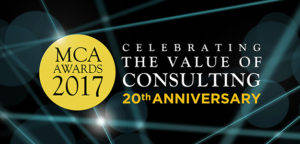Rethinking Value in Consulting: What distinguishes the top performing firms from the rest?
8 min read
“What is it that distinguishes the top performing consulting firms from the rest?”
This could quite literally be the million-dollar question for some firms.
Why are some firms able to maintain a healthy supply of new clients, run many successful consulting engagements and attract the best people, when, at least on paper, their consultants appear to have similar levels of experience, knowledge and expertise as other firms?
Here’s our hypothesis:
A firm’s consulting methodologies and tools are important but they are not enough in themselves.
Instead, what matters most is the perceived value created by the consultant in the client’s mind in every interaction before, during and after the engagement.
Rather than superior consulting tools or ‘solutions’, the success of a consulting firm is a direct function of its people. So, what distinguishes the top consultants from the rest?
We believe it is not high levels of technical, functional or sector knowledge – that is par for the course – but superior human, emotional and cognitive capabilities: an ability to communicate effectively, form relevant points of view, think critically, be creative and illustrate significant value in every single contact with the client and how consulting firms reward, encourage, share and embed these behaviours across the organisation is what determines the overall performance of the firm.
Testing our hypothesis – The MCA Awards Winners 2017
 Quite rightly we could be accused of being overly inclined towards this view because these are the skills and behaviours we have developed for our consulting firm clients for over 25 years.
Quite rightly we could be accused of being overly inclined towards this view because these are the skills and behaviours we have developed for our consulting firm clients for over 25 years.
So, to suitably test our hypothesis, we needed to find a list of the best performing consulting firms, where financial performance wasn’t the sole indicator of success, where firms explain what they believe are the secrets to their success and where performance has been independently verified by an objective group of assessors.
Thankfully, such a point of reference did exist: the winners of the Management Consultancies Association (The MCA) Awards 2017.
The MCA awards are the benchmark for quality in the UK consulting industry with entries from many of the UK’s top consulting firms. Each year, the winning firms are picked by an independent panel of judges based on written submissions and presentations from each firm.
(Disclaimer: In the interest of transparency, I should declare that I had the privilege of judging the ‘Best New Consulting Firm’ category for this year’s awards.)
In an industry where firms are understandably keen to keep the secrets of their success close to their chests, the awards submissions provide a rare opportunity to get an insight from the consulting firms’ own perspectives on why they believe they have been successful in the last 12 months.
The awards judges must also submit their reasoning behind each winning firm which adds another element of objectivity to the data.
Having analysed the winners and highly commended entrants from this year’s awards – trying very hard to refrain from our own confirmation bias – this is what we found:
It ain’t what you do, it’s the way that you do it
The ‘Bananarama Theory’ (with thanks to Source Global Research) holds true:
“It ain’t what you do, it’s the way that you do it, and that’s what gets results”
Value is not something created by a consulting tool, it is a judgement made in the client’s mind based on the experience of working with that consulting firm.
What distinguishes the top performing consulting firms is that they have identified and mastered the core skills and behaviours required to create value in the client’s mind in every interaction with the firm.
Take Integration Consulting for example, who won the ‘Project of the Year’ award:
“The success of this engagement relied on an innovative approach balancing entrepreneurial and consulting skills, putting communication, stakeholder management and clear governance at the heart of the endeavour, rather than mere support tools.”
Similarly, consider Egremont Group who won the award for ‘Change Management in the Private Sector’:
“It’s not only our experience and practical application of methodologies that helps us to do our job. It’s also who we are and the way we partner with our clients that enables us to dig deep beneath the surface to create an environment of sustainable continuous improvement.”
In other words, while consulting methodologies and tools are important, it appears they are not enough on their own.
What makes the difference is not the consulting tools in themselves but how consultants communicate the insights created by these tools in a way that the client can understand and act upon.
Take the example of PwC who were Highly Commended in the “Client Service and Value” category. They clearly understand that while knowledge is important, knowing how to translate this expertise into relevant and unique points of view and having an ability to communicate this insight in a way that the client understands and can relate to, is what determines the level of value created for the client.
“We recognised that even when we had quality thinking and material, we still had some way to go to help our people translate that into meaningful conversations with clients.
So we orchestrated a comprehensive communications and training campaign including sharing success stories, a new Masterclass series, external speaker events and a new e-learn, increasing the number of people who know how to develop and then use Foresight in client conversations.”
We find it is the top performing consulting firms who take the time and effort to invest in, develop and refine the critical cognitive and behavioural skills that truly create value for their clients.
Values in Action
Having determined that value is a judgement made in the client’s mind based on the experience of working with a consulting firm and that certain behavioural skills are critical to maximising this perception of value, it follows that a firm’s values should reward and encourage the use and sharing of these behaviours throughout the whole organisation.
From our analysis of the MCA award winners it becomes clear that their values are not simply pithy statements but lead to direct actions and behaviours shared throughout the firm.
This is an important but subtle point. Many firms have well-known, often altruistic stated values but it is how these values are realised in every interaction with clients and colleagues that distinguish the top consulting firms.
“Values are what not what you aspire to, values are what you are prepared to enforce with consequences for non-compliance.”
Similarly, as Simon Sinek has recently argued: For values to be actionable, to be able to hold people accountable to them, to measure their use, they must be verbs:
“Values are things you do. Values are things you live by. You cannot ‘do’ nouns. You can only ‘do’ verbs.
If you look at organizations you see that they have their corporate values on the wall and it says, ‘innovation, respect, honesty.’ Beautiful posters! But if you have to write honesty on the wall you have bigger problems!
You can’t do innovation. You can’t walk into someone’s office and say: “From now on please, a little more innovation.” You can say: “Look at the world from a different perspective” instead of innovation. Instead of honesty you can say “do the right thing.”
…You can hold people accountable to that, you can build measurements around that.”
PPL – winners of the ‘Client Service and Value’ award – appear to be a firm who recognise their values must be embodied in everything they do:
“PPL’s first challenge focused around how to embed their founding values in their everyday work, the second how to sustain this through a period of rapid growth and change.
Through working in partnership with clients and staff, translating values into practice and investing not just in structures and policies but people and results: PPL has secured a 95% repeat business rate across the 9 years they have been in operation and 100% in independent staff surveys, recommend PPL as an organisation to work with.”
Another top-performing consulting firm who understand that values must be put into action is Arup, who won the ‘Consulting Excellence Award for Ethical Behaviour’:
“Arup is built on clear shared values which shape its goals and behaviour. Quality, integrity, humanity and usefulness are the underpinning principles driving forward a firm that constantly strives to make a difference.”
Values in Action: Knowledge and Skills Transfer
Knowledge and skills transfer is a prime example of how the top firms put their values into action to separate their firm from the rest.
The top consultants recognise that knowledge and skills transfer must be a key part of their role and the firm ensures this happens as a matter of course “because that’s just the way we do things” throughout an engagement.
The reason is simple; returning to the notion that the success of a consulting firm is directly related to the perceived value they create for their clients, by transferring their knowledge and skills throughout an engagement, consultants ensure their clients continue to benefit long after their immediate project is completed. Likewise, the perceived value of their work is significantly enhanced in the client’s mind long after the project has ended.
Countering our Confirmation Bias – When consulting firms disprove our hypothesis
At the outset of our research we were determined to try to counter our confirmation bias by seeking out examples of top performing firms that disprove our hypothesis that consulting tools are important but not enough by themselves.
We did find some firms for whom outstanding performance predominantly came from the use of market leading or consulting tools. Pearson Ham Consulting, for example, the winners of the ‘Commercial Excellence’ MCA award, were recognised for their innovative and outstanding pricing methodology.
However, rather than providing evidence contrary to our hypothesis, in fact, we would argue that firms whose key advantage comes from their proprietary consulting tools need to focus even more on their human, emotional and cognitive capabilities.
Why? Because value is created in the mind of the client before, during and after an engagement. Should a client perceive a firm’s consulting tool as the sole mechanism that creates value, they can start to perceive the consulting firm towards the commodity end of the consulting spectrum.
This isn’t a race to the bottom that firms would really want to win because it is categorised by high-volume, low margin engagements with price often the differentiating factor.
Conclusions
What still distinguishes the top performing firms isn’t just exceptional consulting tools and methodologies or their consultants’ knowledge and expertise – these are par for the course. What differentiates the top firms is the behavioural, emotional and cognitive skills their consultants use to communicate their insight in a way that adds real value to clients throughout an engagement.
Crucial to this for consultants is a re-evaluation of how value is created for clients. Value is a perception in the mind of the client created during every interaction with the firm.
As the MCA award winners show, the top firms recognise that there are certain behaviours that will always amplify this sense of value in the client’s mind. MCA winners put as much emphasis on developing, rewarding and sharing these critical behaviours as they do on developing their consulting tools or specialist knowledge.
They also ensure that, rather than being pithy statements, their values and principles support these behaviours by measuring and rewarding their use in everyday working. Knowledge and skills transfer is a prime example of this idea in action.
Recommendations:
Based on our research into the MCA award winners 2017 and rethinking how firms create value for their clients, we would propose the following steps for consulting firms:
1. Develop the core behavioural, emotional and cognitive skills required in consulting:
Consulting skills go well beyond simply analytics and modelling. Core consulting skills should include: how to challenge clients, how to form and offer a point of view, how to communicate effectively, how to listen effectively, how to present results, how to think critically and creatively and how to manage client relationships.
2. Turn your firm’s values into actions:
As Sinek suggests, your values need to be actionable, measurable and reward the behaviours that really create value in the mind of the client. Rather than stating that ‘speed, flexibility, collaboration and engagement’ are our guiding principles, determine what behaviours will illustrate these values and how you will hold people accountable to these standards. What would you like your clients’ overriding memory to be after working with your firm and what stories would you like them to tell about you
3. Ensure your firm’s metrics measure and reward the behaviours you want to see:
Linked to the point above, if your firm’s performance metrics are based on activity (utilisation / billable hours) or financial metrics are they compatible with your firm’s stated values? Most likely they are not. If your Partners are fixated on and reward short-term activity-driven, financial metrics, what signals does this send to employees and ultimately clients about the behaviours the firm values?
4. Ensure there are systems in place that enable and reward knowledge transfer:
Beyond simply ensuring agreed deliverables for their clients, the top firms recognise that the perceived value for their clients can be significantly amplified by passing on skills to clients that can be used long after an engagement is finished.



